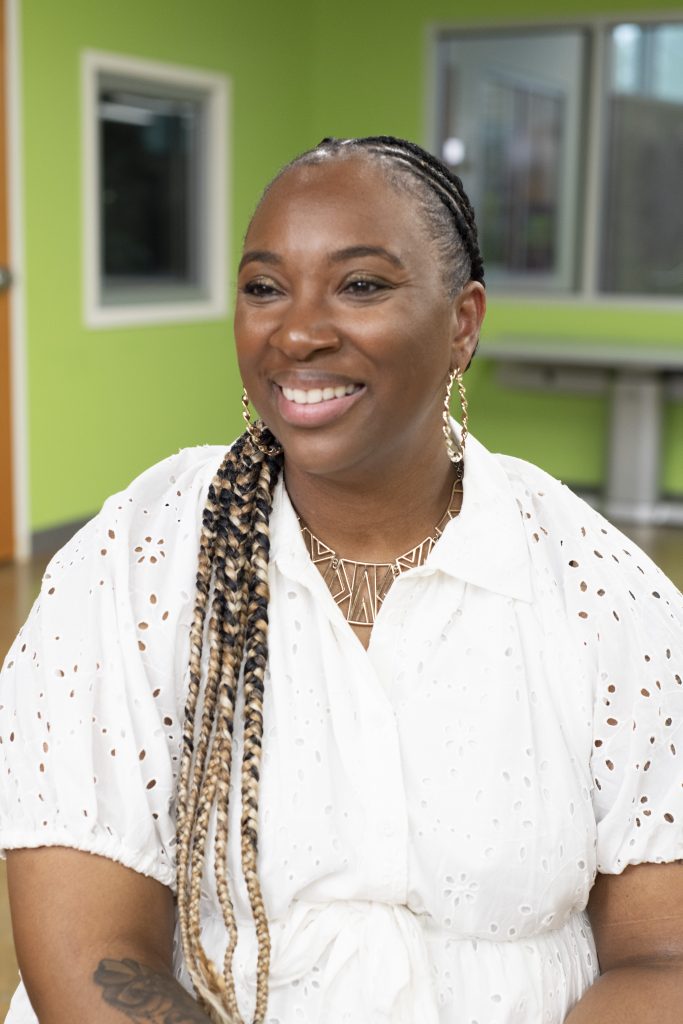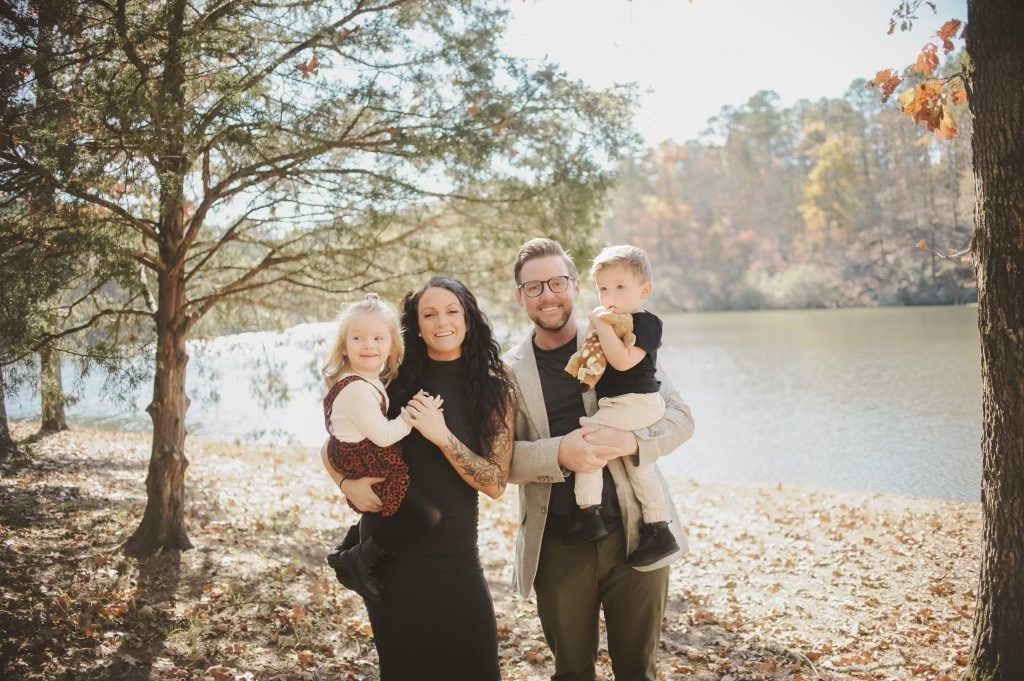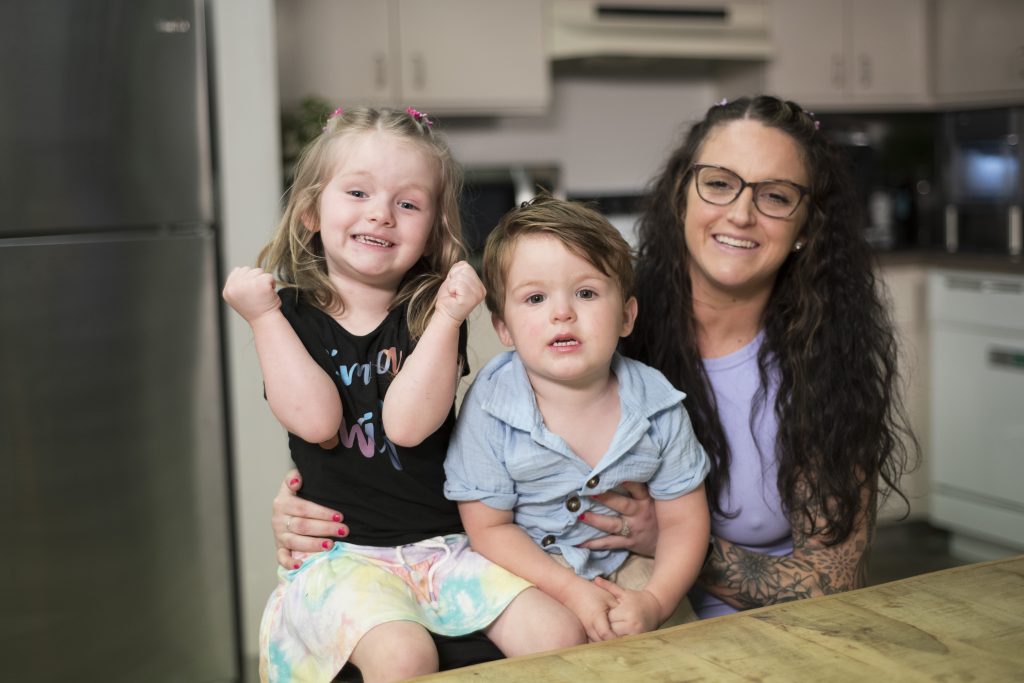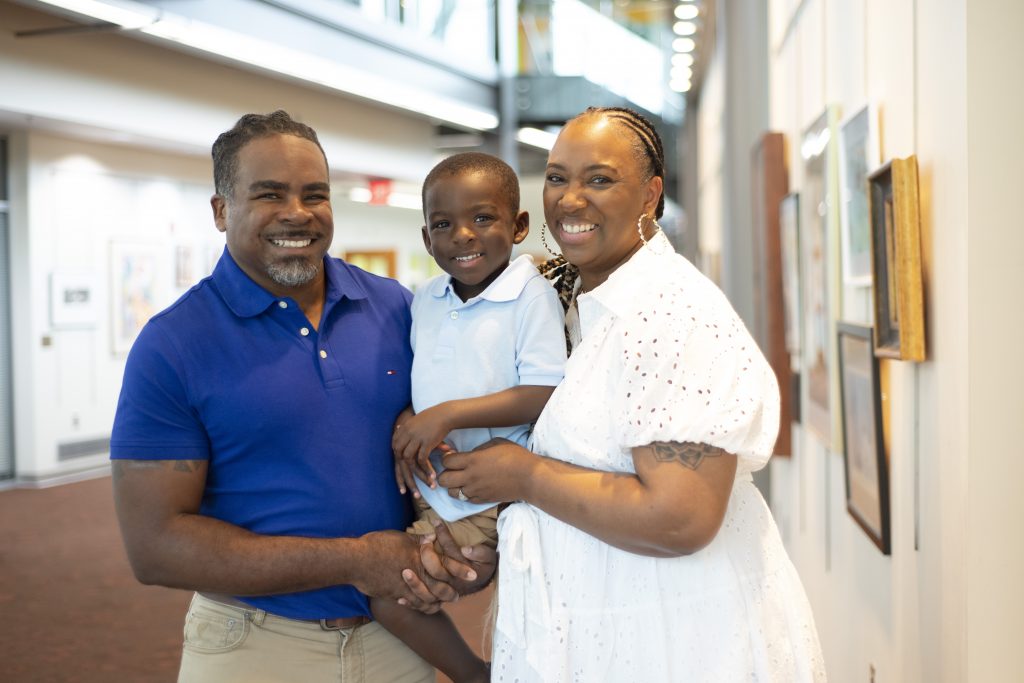By Kim Dishongh
Allyson Cheatham was anxious when she went for prenatal care during her first pregnancy.
“I felt very judged,” said Cheatham, recently discharged from the U.S. Army in 2011. Young and newly pregnant, she returned home to Arkansas to be near family. “I felt rushed. I felt not heard. As a result, I lost my daughter.”
Cheatham’s experience is not uncommon in Arkansas. Aware that prenatal care in the first trimester is linked to healthier babies, Cheatham made an appointment immediately.
“They said, ‘So it’s just going to be you and this baby. That means you’re going to be on Medicaid, right?’ This is what the provider said to me. I said, ‘Actually, no ma’am, I’m a veteran so I have TRICARE insurance,” Cheatham said.
“They were very cold.”

No one explained to her why, five months into her pregnancy, she was given a vaginal exam.
“I now know that there was no reason for a vaginal exam to be done at that time, but at the time I didn’t know that,” she said. “I felt a pop and felt a little bit of pain, and I kind of jumped a little.”
Shortly after that, she was back in the doctor’s office. “I was leaking amniotic fluid,” she said. “I continued going to my doctor’s appointments, and they were just awful because they were doing ultrasounds to check my levels, and with every appointment the amniotic fluid was just getting lower and lower.”
She remembers the last ultrasound.
“It was just very quiet. The ultrasound tech said, ‘See her fluid level?’ It was literally sitting on top of her head,” said Cheatham.
Her questions about the possibility of an amniotic fluid transfusion were dismissed.
“I saw a nurse practitioner that day. She came in and sat down beside me, put her hand on my knee, looked at me and said, ‘I’m sorry. You are probably going to lose your baby over the weekend.’ Then she got up and walked out of the room and left me there by myself,” she said.
Cheatham named the daughter she was carrying Amani. “It means ‘faith,’ in Swahili, because I was standing on faith when they told me she wasn’t going to make it,” Cheatham said.
A few weeks later, around Christmas, Cheatham went into labor while visiting her grandmother in southwest Arkansas. Her family took her to the nearest rural hospital, which was ill-equipped to care for her when she began hemorrhaging. She was rushed by ambulance to a larger hospital an hour away. Data from the Center for Healthcare Quality and Payment Reform shows that 60 percent of Arkansas’ rural hospitals lack labor and delivery services.
Cheatham mourned her daughter and vowed to help other women avoid the heartbreak she experienced.
Kirsten Jones, too, made it her mission to support pregnant women. Jones’ son, Omari, was born in November. She is an outreach specialist with the Arkansas Birthing Project, and she serves as a “sister-friend” to other pregnant women in central Arkansas.
“They listen to me,” she said. “We share back and forth, and they will ask me how my baby’s doing and give me tips on breastfeeding and just encouraging words.”
Jones said there were parts of her well-researched birth plan the hospital where she delivered would not honor, and she was unprepared to contest those decisions while in labor. She advocates for other women in labor, hoping to instill in them confidence to speak up when needed.
“Doctors tell them they need a c-section, or they need to schedule one, and they don’t know why. A lot of people don’t challenge the medical system just because we may feel inadequate,” Jones said. “We think the doctors know better. We were raised to believe they’re here to help and heal us, save us, but everyone is different. We need to ask the right questions.”
Jones also talks with other new moms about balancing rest with never-ending childcare chores and about the importance of mental health.
Mental health needs are deeply important to Ashli Humphries-Headley.
Humphries-Headley’s husband, a major in the Army Reserves, was deployed to the Middle East shortly after the birth of their son, Beck, in August 2020.

She had a good family support system, and she had good insurance, as well. But her newborn son wanted to be held constantly and would only breastfeed.
“I would get maybe three hours of sleep, consecutively. I was by myself, and I had a 2-year-old,” she said. “I wasn’t eating enough, and I felt depleted all the time.”
When Beck was 4 months old, she dreamed she had to choose which of her children to save when a bridge collapsed, plunging their car into the water.
“I remember one night I had a dream that my son was suffocating. He was turning purple and blue, and I couldn’t save him,” she said. “I couldn’t wake up from it, and I was like, ‘That was weird.’ Those continued for about two weeks straight, dreams like that.”
Intrusive thoughts continued; she was exhausted and still her son cried and cried. She remembers putting him in his crib and closing herself in a closet to scream out her frustration. Humphries-Headley, a former pediatric therapist, saw a therapist once a week.
“I was not going to throw my son across the room, but I recognized that I was not OK,” she said. “I told myself, ‘You’re OK. It’s just a bad day, not a bad life.’ But it wasn’t getting better.”
Her therapist declared she had postpartum depression.

“I said, ‘But I’m not sad,’” she said. “I’m not unwell to the point of not being able to get out of bed; I’m not losing interest in things I like to do. I didn’t have the basic signs of depression.”
She sought help from other experts, one of whom diagnosed her with postpartum rage — but knew of no medication or therapy to tackle her problem.
“I needed to get better; I needed to raise my kids,” said Humphries-Headley. “I ended up doing a clinical trial in another state.”
She got better, but the ordeal stole precious time.
“I don’t remember my son crawling for the first time. I don’t remember him starting solid food. I don’t remember him rolling over or his first Easter,” she said. “My earliest memory is of him walking. It makes me feel guilty and sometimes I cry. I was in such a psychosis, but I was high functioning, and I had no clue.”
She knows other women are going through similar situations. “Most therapists don’t take insurance. What if I hadn’t had a therapist to guide me? Imagine the moms who are going through this, who are dying inside, because maybe they’re on Medicaid and their health care cuts off 60 days after they have their babies. I didn’t even know something was wrong for about four months.”
The Arkansas Maternal Mortality Review Committee recommends extending Arkansas Medicaid maternal coverage from 60 days to one year postpartum, “to monitor the mother’s physical and mental health, provide support during the transition, and ensure access to treatment.”
Cheatham has chosen to support women through her career. “That was my driving force to become an RN,” said Cheatham. “My daughter was my motivation for helping other women not go through what I went through.”
Through her work as a mother-baby nurse, she spoke up for one new mom who had had preeclampsia.
“Her blood pressure was through the roof — I’m talking stroke range — and it had been like that for three days,” said Cheatham. “She was going to be discharged the next day and go home.” Cheatham called the woman’s doctor.
“He kind of brushed me off, and I just kept calling him back,” she said. “I finally was like, ‘Listen, I’m scared she’s going to have a stroke and die if she goes home. We cannot send her home like this.’”
The doctor came in to see the woman, who remained hospitalized for four more days while her blood pressure issues resolved.
A 2023 legislative report by the Arkansas Maternal Mortality Review Committee found that hypertensive disorders of pregnancy are among the top underlying causes of pregnancy-related deaths in our state.
Also according to that report, “Ninety-two percent of pregnancy-related deaths were considered potentially preventable.”
Cheatham married her husband, Antonio, in 2018. They have a son, Maverick, 3.

“He’s my miracle baby,” said Cheatham, diagnosed with an incompetent cervix during her second pregnancy.
She wonders if this complication was the result of injury caused during the vaginal exam she had in 2011.
“So, yes, I’m advocating for moms, for babies,” she said. “I didn’t have a voice, but there were lots of things that I saw, that I fought for with my patients.”
